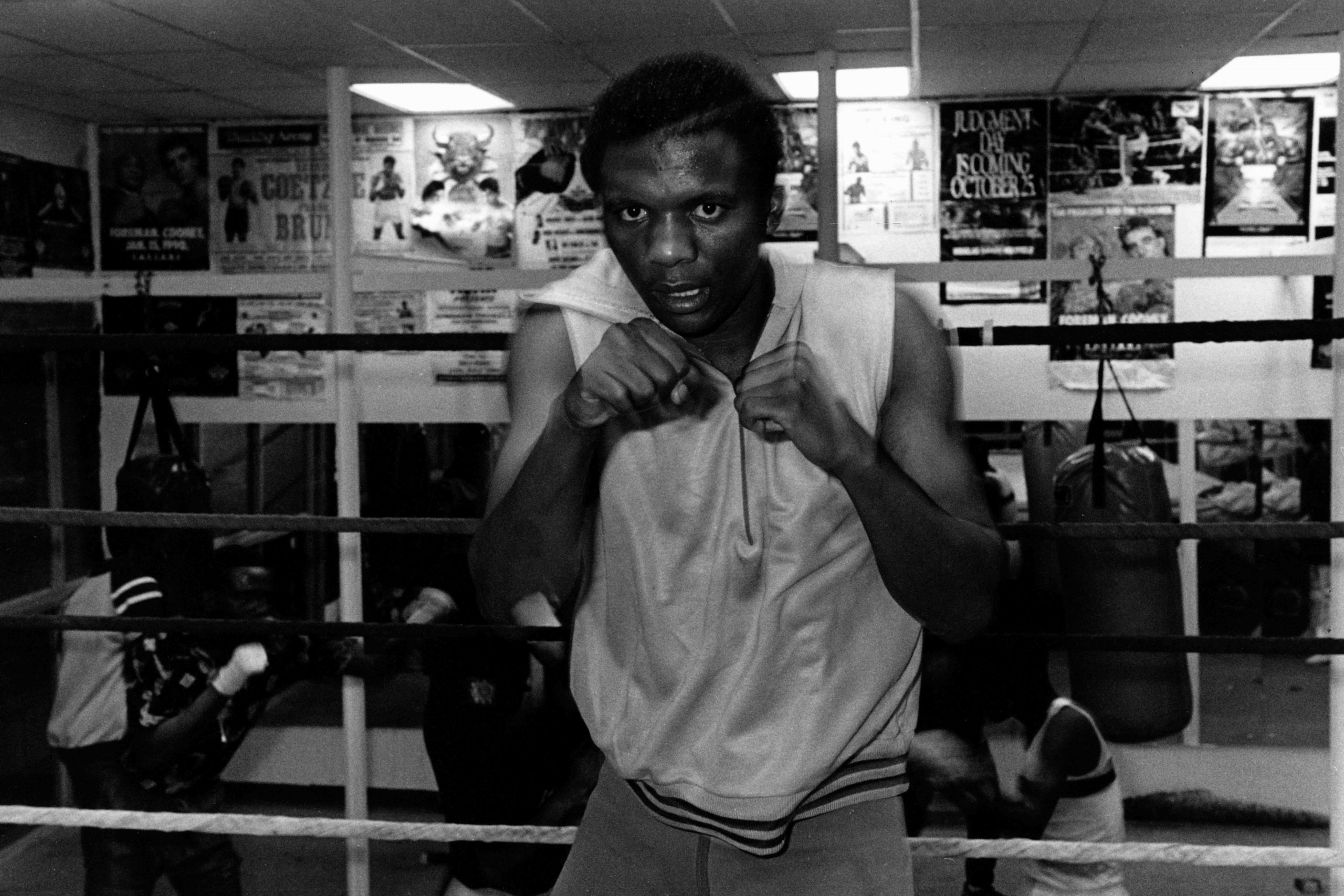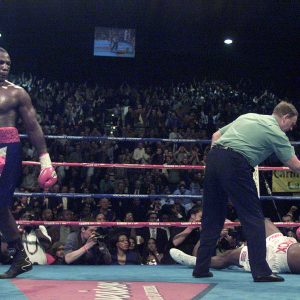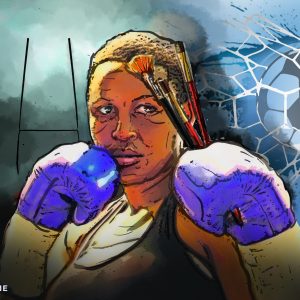Why Dingaan Thobela will never forget 27 April
Four years before South Africa gained its freedom, Thobela fought in a bout in the US that would have made him a world champion. Even though he won and received no belt, that night changed his life…
Author:
15 May 2020

While most of the country lamented the irony of being in lockdown on Freedom Day, one man was reminiscing about just how special 27 April was for him. And not because of what happened in 1994.
Dingaan “The Rose of Soweto” Thobela is known as one of South Africa’s greatest boxers, having been crowned world champion on three occasions. When he looks back at his illustrious career, though, Thobela singles out the Friday night in Biloxi, Mississippi, on 27 April 1990 as one of the most special.
“For me, that was the day I first became world champion,” Thobela reflects. “That fight with Mauricio Aceves was meant to be a title fight. All the papers were signed and we went to America knowing we were going to fight for the world championship.”
But what happened was the kind of gamesmanship that would have broken many a young boxers and probably put paid to their aspirations to be boxing greats.
“A few days before the fight, they told my promoter [Thinus Strydom] that the title was no longer at stake and that we would be fighting a 10-rounder. I was devastated. I had prepared to fight for the world championship, and then I get told it is just a friendly fight. How can people be so unfair?”
But with the great Norman Hlabane by his side, Thobela was able to see through the Mexican boxer’s gamesmanship and instead of being discouraged, he got on with the fight and duly won.
Words of encouragement
“Our country was changing at that time and I’d received a call from [Nelson] Mandela [just out of prison] wishing me well before I went to America. He told me to represent the country proudly, to bring the title home. The title may have been off the table, but I came back home feeling I was a world champion. The uncrowned world champion.”
Little did Thobela and his camp know that a few years later, 27 April would become an even bigger day in South Africa – the country’s first democratic elections taking place and the day going on to become Freedom Day. Thobela still had to get his “freedom” though.
Related article:
Fortunately for him, the Aceves camp could not play hide-and-seek for too long and later in September, the two boxers squared off again for the championship and Thobela reigned supreme.
“After the April fight, I went straight back to the gym. There was no resting because we knew the title fight would happen soon. But Thinus organised a fight for me and I beat Pascual Aranda. That made me all the more confident for the second fight with Aceves.”
Thobela, then a darling of black South Africa, had to win the world title, if only to prove a point to white South Africa, which had Brian Mitchell as a world champ. The mood in the country was tense. Mandela’s recent release had galvanised black South Africans and given them renewed confidence, so much so that many called for a clash between rising star Thobela and world champion Mitchell.
Thobela wanted the fight. “Brian was the best boxer in the country then and I wanted to fight him to prove myself. I believed I could beat him but the fight never materialised.”
A real world champion
That, though, did not stop the boxer who used to enter the ring to the sound of Tina Turner’s Simply the Best. And he lived up to the billing on 22 September 1990 by beating Aceves for a second time to become the World Boxing Organisation (WBO) lightweight champion of the world.
“I knew my life would change for the better if I won that world title. I remember sitting in the dressing room before the fight and saying to myself, ‘You cannot let go of this great opportunity.’ For me though, the fear of losing was big. I was thinking, ‘We are in his backyard, he is the champion. What if they rob us? What if he is much stronger than he was in the first fight?’ But I had trained well and I had beaten him before. I just had to prove that it was no fluke and give it my best. I knew that I had the backing of my people back home. I could not let them down.”
He remembers the hostility in the arena. “They were all backing him. I knew I had to do something special to beat him. I did not bother myself about the crowd because I was representing millions of people back home and, going into the ring, I felt this was more important to me than to him.”
Thobela did not disappoint. He won the title and went on to defend it twice, before challenging the then revered Tony Lopez for his WBA Lightweight title. The first time in Sacramento, California, Thobela lost on a unanimous points decision. However, many disagreed with the judges’ verdict and termed it a “hometown decision”.
Related article:
A rematch was inevitable and four months after their initial fight, Thobela and Lopez squared up again at the Sun City Super Bowl. This time, he won.
“One of my greatest fights. People came in huge numbers to support me and the Super Bowl was filled to capacity. I had to prove myself a world best once again and I was delighted to win that fight.”
He would lose that title in his first defence against Kyrgyzstan’s Orzubek Nazarov, who beat him in a rematch. Immediately afterwards, he lost to Karl Taylor of Britain and people thought the end of his days as a boxer had come. But that proved false as he recovered to register a string of seven good wins, all by stoppages, against quality opposition, among them Kenny Vice and Jaime Balboa.
It was years later though, as a much bigger man, that Thobela was to stun the boxing world by winning a third world championship: the World Boxing Council Middleweight title.
“After losing the fights against Nazarov, there was a doubt about whether I could still be world champion. But there came a time I was not truly active and I struggled with weight. I ballooned all the way to 76kg. Besides the lack of activity, I also ate a lot of pap, comfort eating because of not being very active. And then I got a shot at the world title against Glenn Catley, who had beaten Markus Beyer.
“No one gave me a chance. People said I could not even crack an egg, that I was over the hill. But I won that fight to become a world champion again. It was fantastic, one of the great highlights of my career,” Thobela gushed as he remembered his final round knockout of the highly rated Catley, who was ahead on points at the time.
He could not hold on to the title, but continued fighting anyway. The sight of a one-time great that many likened to the great Sugar Ray Leonard looking overweight and getting pummelled disappointed many. But Thobela just could not stay out of the ring. He lost an incredible seven fights in a row before he sensibly hung up his gloves.
“When it is in your blood, it is always there. The love of fighting does not go away, you just want to be in that ring. You can check, globally, the fighters just keep going on when many believe they should stop.”
He is 52 now and a successful businessman. But, he says, “If someone was to say let’s get into the ring today, I would.” No doubt in the hope he relives 27 April.


